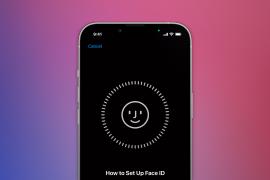An unhackable iPhone? Apple is working on it now
After government challenges, Apple aims to develop even tougher encryption

Last week, Apple publicly stood up to the United States Federal Bureau of Investigation, saying that it wouldn’t acquiesce to demands to create a backdoor hack for iPhones so the government can access private data.
And Apple might double down on that stance by making future iPhones even harder to crack. The New York Times reports that Apple is working on “new security measures that would make it impossible for the government to break into a locked iPhone” via current methods. Security experts tell the Times that Apple “almost surely will” be able to significantly improve upon its encryption methods.
Granted, that might just create a new back-and-forth cycle of governmental demands, the creation of new hacking methods, and further encryption advances, but Apple seems intent on keeping its customers’ data away from big brother by all reasonable means possible.
Apple CEO Tim Cook and others have spent the last week-plus voraciously defending the company’s position, with other tech giants like Google, Facebook, and Twitter all backing the need to protect consumers from government intrusion. However, given the circumstances of this particular case, in which U.S. authorities want to crack a locked iPhone owned by a gunman who killed 14 people in San Bernardino, California in December, public sentiment is mixed on Apple’s hardline approach.
The U.S. government wants Apple to code backdoor access into iOS, but Apple fears a snowball effect ahead – that it will lead to more and more requests from governments around the world, and create a way for hackers to access your private data. On Wednesday, Tim Cook called such a backdoor "the software equivalent of cancer" in an interview with ABC News.
Apple wants the U.S. Congress to get involved and set rules and limitations for government access to private data found on smartphones and other devices. But given this new report, it seems Apple isn’t going to rely on Congress alone to put a stop to invasive government requests.
[Sources: The New York Times, ABC News]



